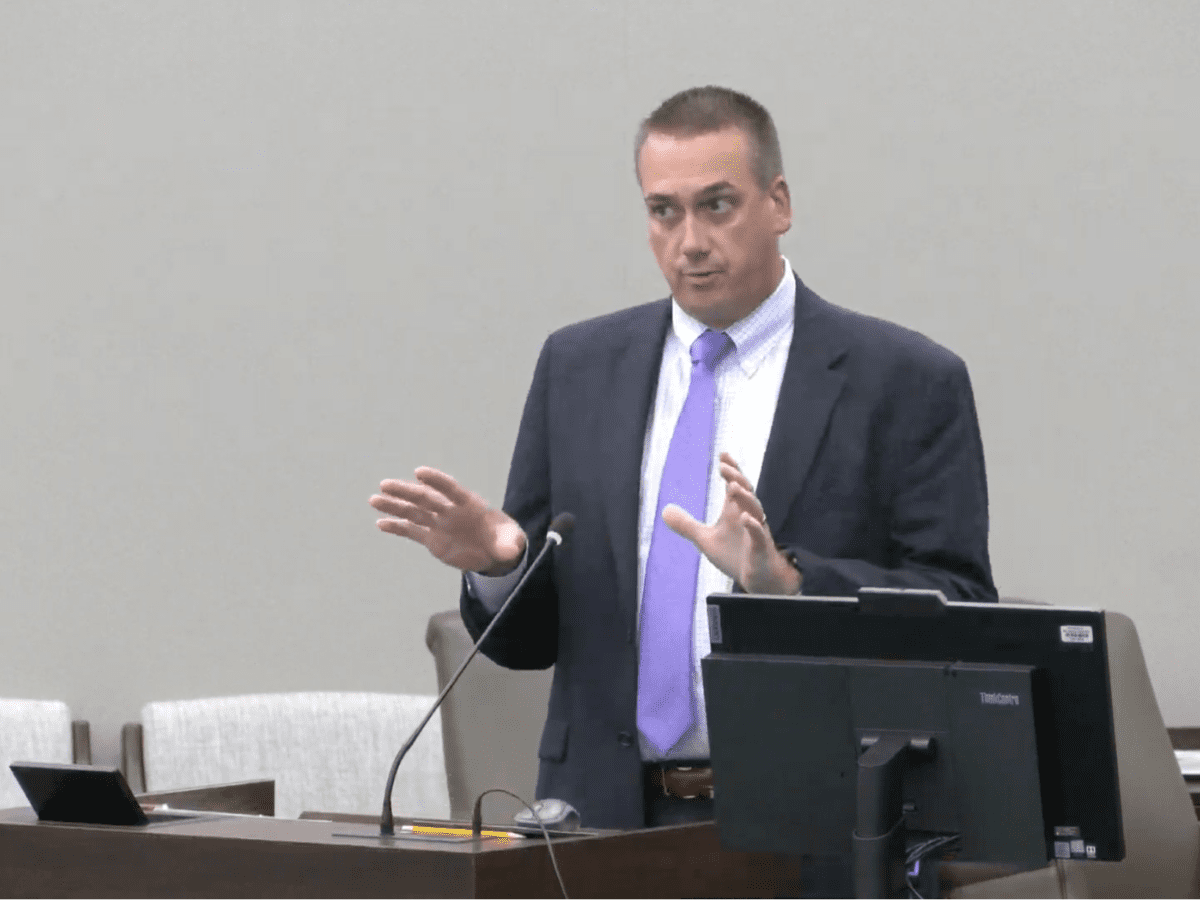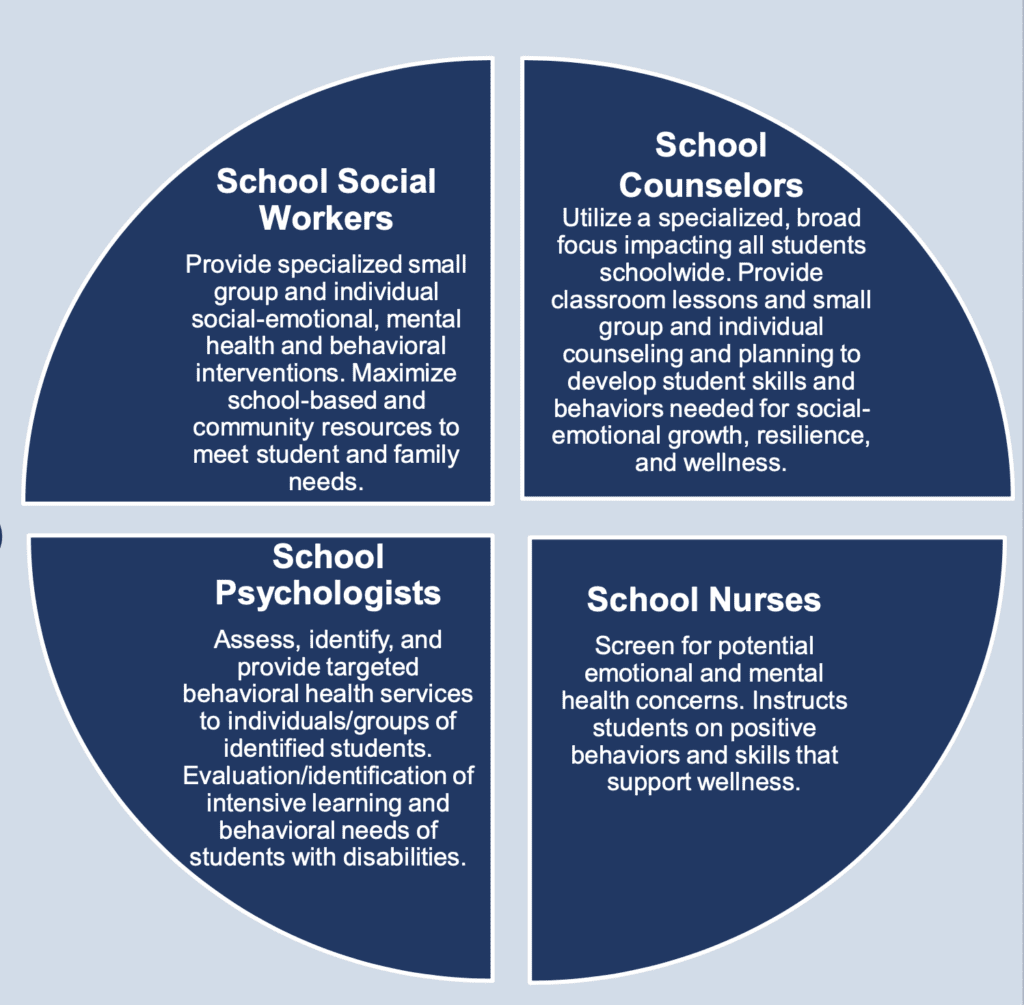

Share this story
- Schools are having a hard time staffing sufficient numbers of counselors, nurses, social workers, and psychologists. A new report from DPI lays out some reasons why.
- A new report from the state Department of Public Instruction looks at why schools are struggling to staff recommended numbers of professionals to support mental health and testing for students with learning differences.
Low salaries and high caseloads are two barriers preventing public school districts from staffing recommended numbers of professionals to support mental health and testing for students with learning differences. Those are some of the findings from a report the General Assembly asked the Department of Public Instruction (DPI) to conduct when it passed the long-session budget last year.
On Thursday, DPI Chief Financial Officer Alexis Schauss presented findings from the report to the Joint Education Legislative Oversight Committee (JELOC). The report shows that, statewide, North Carolina continues to struggle to meet recommended ratios of staffing for specialized instructional support personnel — like school counselors, nurses, social workers, and psychologists.
According to the report, the current ratios of support personnel to students look like this:
- 1 counselor for every 335 students (recommended ratio is 1 to 250)
- 1 nurse to every 890 students (recommended ratio is 1 in each school)
- 1 social worker to every 1,025 students (recommended ratio is 1 to 250)
- 1 psychologist for every 1,815 students (recommended ratio is 1 to 500)
“There is an undeniable important connection between the mental and physical health of students and their ability to learn,” the report states.
“Schools’ ability to meet the needs of their students is dependent on the strength of their school health support personnel: school social worker, nurse, counselor, and psychologist. However, in NC, funding for these positions is insufficient, so the recommended student-staff ratios are not being met.”
The report says 76% of funding for specialized instructional support personnel comes from the state, amounting to about 9% of the state’s education budget. Despite that, and even after additional federal dollars and local supplements, there is a shortage of professionals across the board.
“We don’t have sufficient mental health counseling in our state,” Sen. Gladys Robinson, D-Guilford, said. “So, unfortunately, your schools are where you see the results of children needing that.”
In the long-session budget, passed at the end of last year, the General Assembly provided $22 million for salary supplements to school psychologists (among other support personnel) and $9 million for salary supplements for school counselors. However, the Leandro plan, which laid out additional funding needs to provide students with access to a sound basic education, called for $120 million for 2022 and 2023.
Matthew Stover, superintendent of Catawba County Schools, said it’s easier to contract with outside providers than to recruit them to work in public schools. Through outside contracts, the district can offer services to their middle and high school students, but it still leaves the district short on support for elementary school students.
“The new local supplements help offset that – that has been helpful, but private industry pays a lot better,” he said, adding that private professionals also have more flexibility in working from home and setting their own schedules.
In response to a question from Sen. Tom McInnis (R-Moore), Stover said the licensing requirements — specifically for professionals who move to North Carolina from other states — have presented obstacles. He said there are some alternative licensing procedures which allow districts to hire candidates who don’t meet all requirements so long as they work on missing requirements after they are hired. Without that, he said, he would have a lot more vacant positions.
Stover also clarified that schools’ professional needs include mental health services, but extend beyond that. School counselors, for example, might offer career development advice. And school psychologists, contrary to some legislators’ remarks during the meeting, aren’t mental health support — they focus much of their day testing students for learning differences and analyzing those test results.
Schauss, in a presentation last week to the State Board of Education, offered this slide to clarify the roles of four specialized instructional support personnel positions:


During her presentation to the Board, Schauss released several legislative priorities on this issue that DPI will take up with the General Assembly prior to the next budget. These include funding competitive salaries to increase retention and recruitment, creating clearer job descriptions to protect professionals from being asked to do “inappropriate job duties,” and removing licensure barriers.




